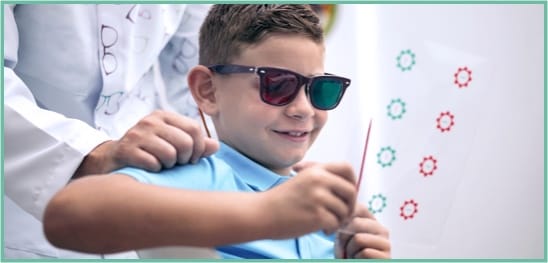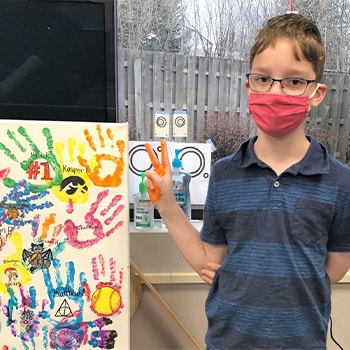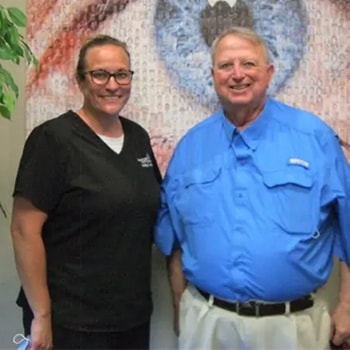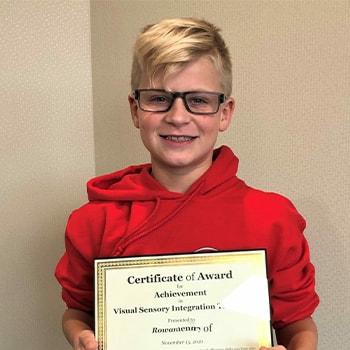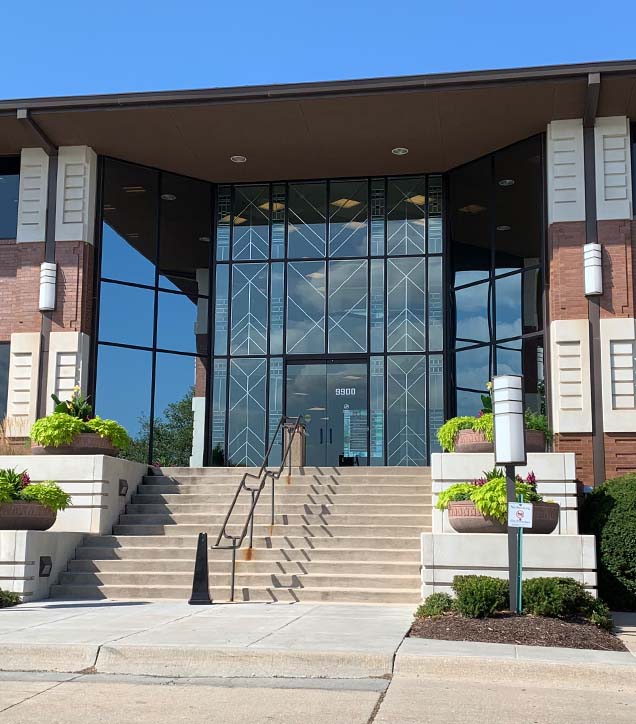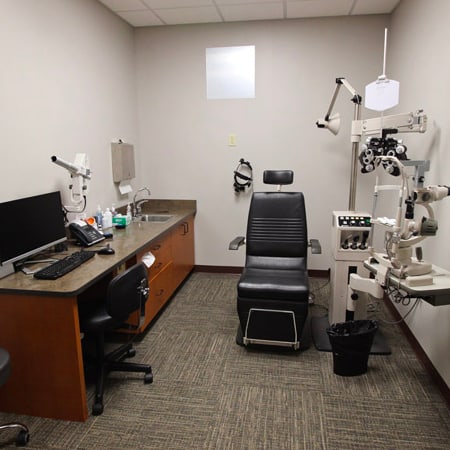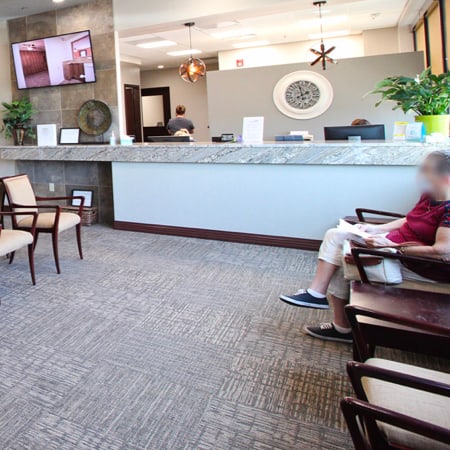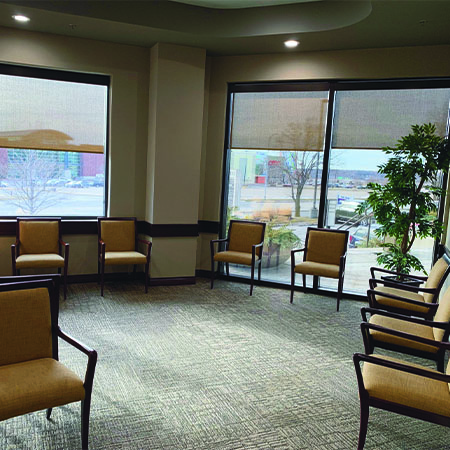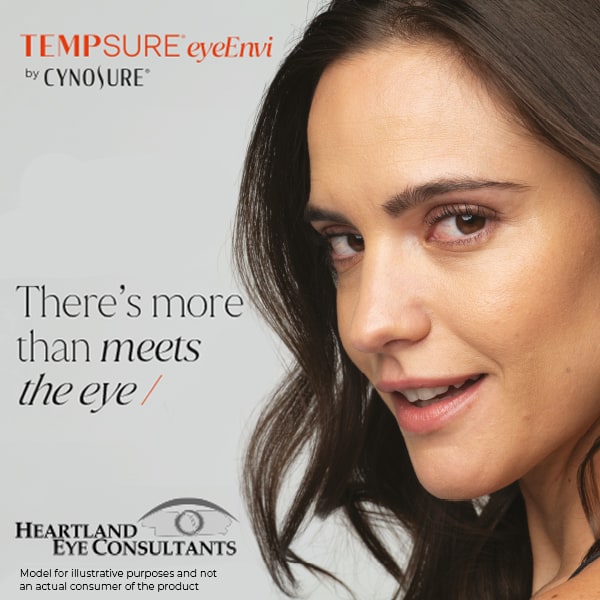For children with reading difficulties, it can be challenging and frustrating trying to keep up with their classmates, leading to a lack of confidence and a negative attitude toward learning. As their parent, it can be painful to watch and wonder if there’s more you can do.
Reading is a critical aspect of a child’s education and helps build a foundation for future personal and academic success. Vision problems are often a significant contributor to reading difficulties, but well-meaning caretakers sometimes misdiagnose them as other conditions such as ADD & ADHD.
Fortunately, you and your child don’t have to struggle through these frustrating times alone. Many people have gone through a similar situation and found success on the other side. Programs such as vision therapy can help your child with reading difficulties reach their full potential.
The Difference Between Sight & Vision
Sight and vision are two factors in your child’s eye health commonly used interchangeably but have an important distinction.
Sight is the ability to see clearly at any distance. In a basic vision screening, your child might be able to see perfectly and be deemed to have 20/20 sight on an eye chart. However, the visual skills related to reading and learning can be more complex than identifying symbols and require a comprehensive eye exam to measure.
On the other hand, vision is your ability to process and understand what you have seen. Good vision involves skills such as eye movements, eye coordination, visual perception, and visual memory. These visual skills are critical for activities such as reading, writing, and playing sports.
Your child may have 20/20 sight but still experience difficulties with reading and other school tasks.
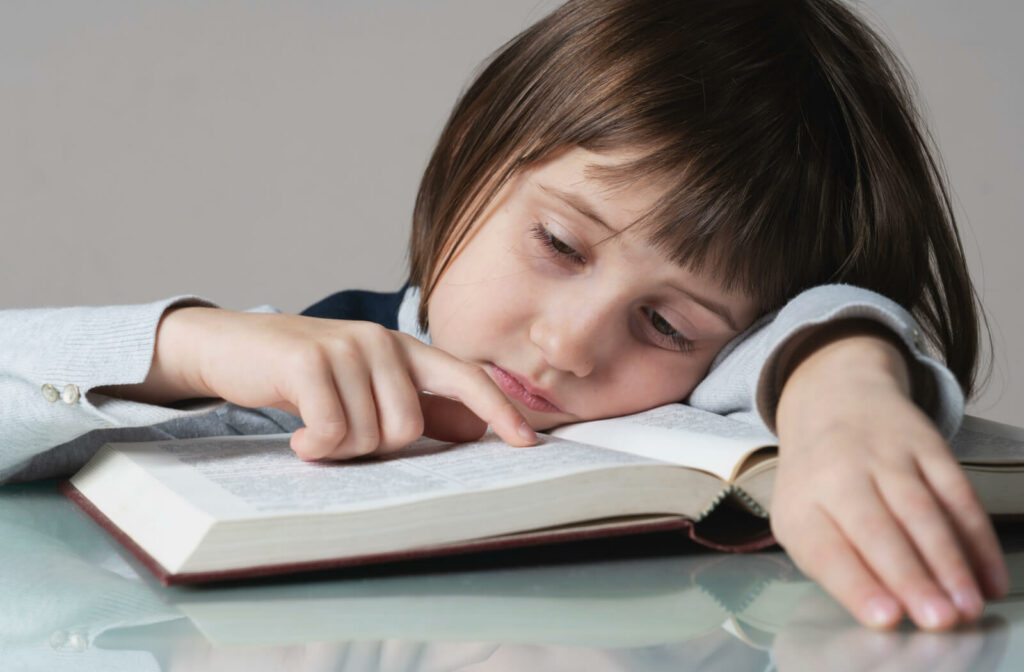
The Importance of Vision in Learning
Vision plays a critical role in a child’s learning process, and about 1 in 10 children have a vision problem that impacts their learning. Your child uses their vision to process information, understand what they see, and make connections with things they previously learned. Good visual skills are essential for a child to read, write, and perform other school tasks effectively.
Poor vision can lead to a host of problems for your child, including:
- Headaches
- Eye strain
- Blurry or double vision
- Excessive eye rubbing
It can be difficult for your child to identify or communicate that they’re having a vision problem since, for them, that’s simply how they see things. Look for these signs that your child’s issues might be related to their vision:
- Avoiding reading and other close work
- Short attention span during visual tasks
- Crossed eyes
- Covering or primarily using one eye
- Poor hand-eye coordination
- Placing eyes very close to things being read
- Poor reading comprehension
Vision Problems & Learning Disabilities
When a child has reading difficulties, many people will first assume a non-vision-related issue, such as attention deficit disorder (ADD) or attention deficit hyperactivity disorder (ADHD). This misdiagnosis is because the symptoms of vision problems, such as difficulty focusing, a tendency to daydream, and poor attention to detail, can be similar to these disorders’ symptoms.
ADD & ADHD
Since vision problems can appear like ADD & ADHD symptoms, it’s essential to rule out visual disorders before receiving a diagnosis. For example, children who have trouble coordinating their eye movement may appear to have a learning disability if parents and teachers aren’t trained to notice the differences.
One such disorder is convergence insufficiency (CI), which causes your eyes to drift apart. Weak eye muscles are not the cause, however. Instead, a lack of communication from the brain to the eye muscles causes it. As a result, your nerves don’t send the correct messages telling your eyes to turn inward.
Because CI happens when doing work such as reading or writing, which a majority of schoolwork is, it can make simple tasks frustrating. In time, your child will feel immense amounts of eye strain and will try to find relief by looking around the room or doing anything that isn’t trying to read. Your child might not even know why; they just know it’s hard to read and are taking vision breaks.
Autism
Children on the autism spectrum can be at a higher risk of having vision problems, worsening their challenges while being masked by the behaviors they use to cope.
People with autism may have problems coordinating their central and side vision, sometimes following an object using the edges of their vision rather than looking directly at it. This movement can be confused with them ignoring the object when they are simply looking at it differently. Eye disorders and crossed eyes are also common.
Treating vision issues could help your child with autism cope with overstimulation and improve eye coordination.
What Is Vision Therapy?
Vision therapy is designed to help improve visual skills and reduce the impact of vision problems on daily activities, including reading.
An expert in vision therapy customizes the treatment for each child based on their individual needs and the specific vision problems they’re experiencing. It involves a combination of activities, exercises, and specialized medical equipment designed to improve visual skills such as tracking, focusing, and eye coordination.
Vision therapy is noninvasive, there’s no surgery involved, and it’s highly effective at treating many visual complaints. This therapy can take 6–12 months, depending on the severity of your child’s vision problems.
Supporting Your Child’s Learning
Reading is not simply about education and learning. A good book should be an escape for children and a chance to use their imagination to go on grand adventures in their minds. Vision problems shouldn’t get in the way of that.
Heartland Eye Consultants have helped numerous children rediscover the joy of reading. If you’re worried your child might have a vision problem affecting their learning, give us a call and meet our knowledgeable care team.









